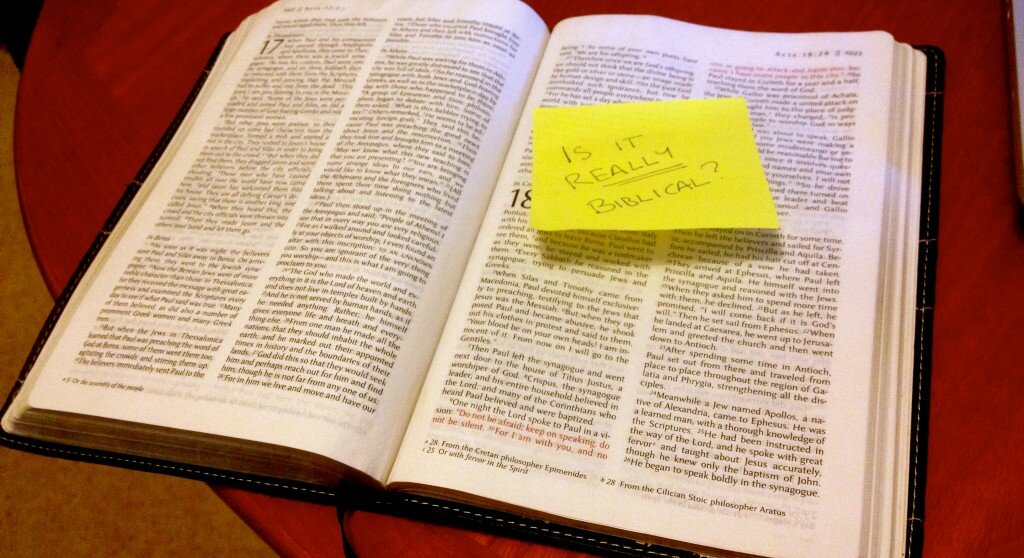Three days ago, for the first time ever, I removed a post from this blog. There have been posts which on reflection could have been better, posts which I’ve added clarification to, and a couple posts I wrote but thought better of publishing at all.
But this time I deleted a post. It went live on Saturday, 250 people read it according to Google Analytics, and on Monday I deleted it. Why? Well, in the words of G.O.B Bluth:
What huge mistake?
The post was called ‘The real problem with Westboro Baptist Church’, in which I reflected on what seemed to be an underlying theological issue at the core of the church’s rather horrifying actions. The springboard for my reflection was a quotation from a spokesperson for WBC, as recorded in .
The mistake: that isn’t a news article at all.
It is from a parody news website, and one which (I have to say) is very well written. But nonetheless, completely fictional.
Armed with that information, with egg on my face, I’m a little embarrassed at having written a piece analysing it, and even more embarrassed that 250 people read that analysis. I really hope not many of them shared it with others or talked about it as if it were true. If you did…
I am sorry.
I am very sorry
In fact I’m sorry to anyone who read that piece. I hope readers of this blog know I value truth very highly indeed. In not researching this properly, I’ve messed up and fallen short of the truth. I apologise.
On reflection, I can see why I did it. Normally I’d check these sorts of things to make sure it’s corroborated elsewhere, but this time I did not. Why? I think because I wanted it to be true. In all honesty – and I’m not proud of this – I wanted for WBC to be have failed in this way because it makes me feel justified and righteous. This is deeply wrong.
And it led me to stride into falsehood, not limp tentatively into truth.
So again, I am sorry.
Let the apology match the crime
As soon as it was pointed out to me what I’d inadvertently done (thanks Dad), I took the post down. There’s no way I can keep something like that up on here. And that could have been the end of it. It’s easy for things to just disappear online.
But that’s not enough. If I had stood in a pulpit and said things that weren’t true, or had done so in print, an apology would be necessary. So I feel compelled to write this post – a retraction and an apology – for two reasons.
First, to put the record straight. I honestly don’t want people believing lies, and since I’ve inadvertently propped one up I need to do what I can do reverse that. If you read my post, shared it or talked about it, please help me set the record straight, and please don’t feel embarrassed – blame me, I’m the one who told you the lie.
Second, I messed up in a public way, so the apology should be public. This is a principle I try to live by, and I never want my blog to be a place where I always seem right, or even just less wrong than everyone else. I want to have more integrity than that.
Simply, I am sorry.




 Thomas’s doubt does not signal lack of faith, but the presence of questions. When Jesus says ‘stop doubting’ it’s not the same word James uses, and rather than castigate Thomas, Jesus allows him to explore his questions, even providing answers and assurance. His questions matter to Jesus. Faith and questions are not opposites. To have faith is not to suppress our brains, our questions or our doubts. To have faith is to bring all of those things to God.
Thomas’s doubt does not signal lack of faith, but the presence of questions. When Jesus says ‘stop doubting’ it’s not the same word James uses, and rather than castigate Thomas, Jesus allows him to explore his questions, even providing answers and assurance. His questions matter to Jesus. Faith and questions are not opposites. To have faith is not to suppress our brains, our questions or our doubts. To have faith is to bring all of those things to God.




 2. ‘I’m just being biblical’
2. ‘I’m just being biblical’

 He’s asking them to forsake all others and be faithful to Him.
He’s asking them to forsake all others and be faithful to Him.
